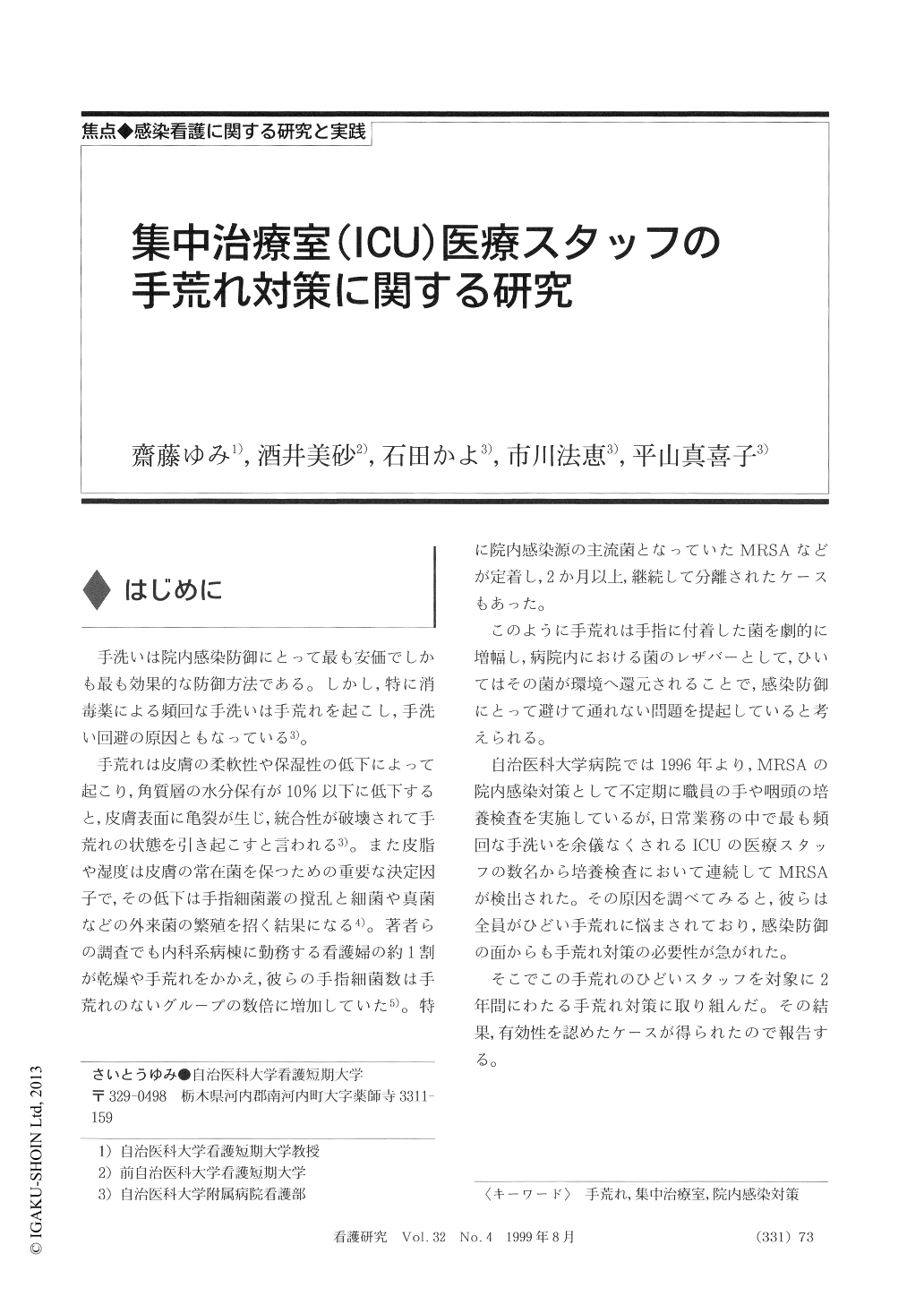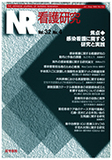Japanese
English
- 有料閲覧
- Abstract 文献概要
- 1ページ目 Look Inside
はじめに
手洗いは院内感染防御にとって最も安価でしかも最も効果的な防御方法である。しかし,特に消毒薬による頻回な手洗いは手荒れを起こし,手洗い回避の原因ともなっている3)。
手荒れは皮膚の柔軟性や保湿性の低下によって起こり,角質層の水分保有が10%以下に低下すると,皮膚表面に亀裂が生じ,統合性が破壊されて手荒れの状態を引き起こすと言われる3)。また皮脂や湿度は皮膚の常在菌を保っための重要な決定因子で,その低下は手指細菌叢の撹乱と細菌や真菌などの外来菌の繁殖を招く結果になる4)。著者らの調査でも内科系病棟に勤務する看護婦の約1割が乾燥や手荒れをかかえ,彼らの手指細菌数は手荒れのないグループの数倍に増加していた5)。特に院内感染源の主流菌となっていたMRSAなどが定着し,2か月以上,継続して分離されたケースもあった。
Hand washing is generally considered the most important procedure in preventing nosocomial infection, but antiseptic agents may produce excessively dry skin if used frequently, and any regimen of hand washing that leads to dermatitis negates the purpose of hand washing by inducing increases in organisms which can cause nosocomial infection. In this study we tried to improve the bad condition of hands of 7 ICU personnel who had severe dermatitis following frequent hand washing with antiseptic agents, and whose hands had been colonised by MRSA (Methicillin-resistant staphylococcus aureus.) Super oxidised water (pH 5.6), made from NaCI in water by electrolysis to reduce the carriage of MRSA on hands, and used Derma Barrier Uni to maintain the humidity of the skin and to protect the skin from external stimuli. The high rate of colonisation of hands by MRSA of all personnel decreased with hand washing with oxidised water over a 4-week period. Two of seven personnel were almost entirely cured of their dermatitis. One of these two was totally cured of his dermatitis, then ceased use of the oxidised water but continued use of the barrier cream, and his dermatitis returned. From this we determined that these agents are efficacious when used together, but are not effective when used separately.

Copyright © 1999, Igaku-Shoin Ltd. All rights reserved.


